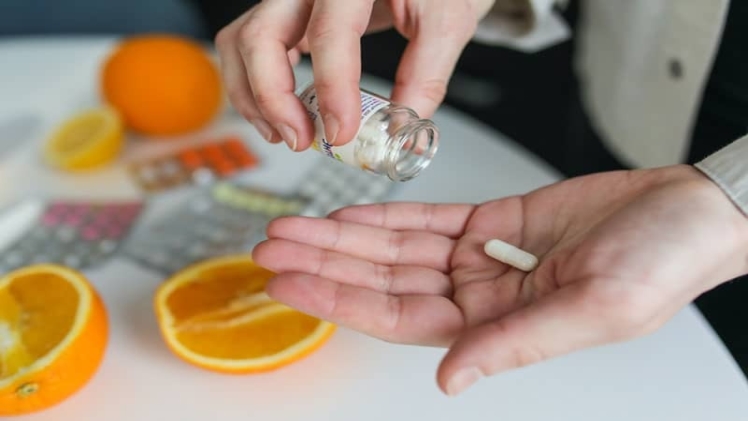There’s no doubt that the internet is a powerful tool. It can help you search and find answers about every subject matter in a few seconds. When it comes to your health, however, there is a time and a place to turn to Dr. Google. While Google may be the easiest way to find treatments for your mental health, it isn’t necessarily the most accurate source. WebMD, for example, can’t take your personal medical history and current treatments into account.
Self-medication, the practice of using medications to treat a self-diagnosed condition, often starts with a Dr. Google visit. But turning to the Internet for your medical needs can be dangerous. Without getting advice from an experienced medical professional, you could take a treatment that does more harm than good. Taking herbal supplements without consulting a doctor, for instance, could interact with your current prescriptions in harmful ways. Or taking medication for a condition that you actually don’t have could worsen your existing symptoms.
All that is to say, if you are dealing with a mental health issue, you need intervention from a trained specialist. A healthcare professional can work with you to understand what you are feeling and what steps to take to receive help. They may put you on a prescription medication or suggest going to mental health rehab for a more in-depth, personalized approach.
No matter how you address your mental health issue, know that getting help from experts is better than self-medicating. That doesn’t mean, however, that you are powerless to assist yourself. Below are three alternative anxiety treatment options that can complement — not counteract — whatever the doctor orders.
1. Relaxation Techniques
Anxiety can occur for a variety of reasons. You may be anxious about your finances, living situation, or relationship. Alternatively, anxiety can creep up before a major event such as a family gathering or an exam. While anxiety is something everyone will experience, debilitating anxiety is something that needs to be addressed. If you’re opting out of seeing friends or missing work, this is a sign that your anxiety is out of control.
Practicing relaxation techniques can help get your mind in a better spot when you’re feeling anxious. Take a moment to think soothing thoughts when your heart starts to flutter instead of grabbing for your phone to scroll through TikTok. Or open up an app such as Calm or Headspace and do a quick meditation. Even five or 10 minutes of sitting still with your eyes closed can leave you more at peace.
There’s a reason that breathwork is an essential component of yoga and tai chi: it promotes relaxation. Research has shown that breathwork can assist those struggling with anxiety, depression, addiction, trauma, and other mental health conditions. Incorporating breathing techniques into your daily routine can help keep anxiety at bay. Before you jump out of bed in the morning, breathe in for a count of four and out for a count of four. This simple act will remind you that, whatever your day has in store, a calm mind can be a breath away.
2. A Balanced, Nutritious Diet
What you put on your plate affects so many aspects of your life, including your anxiety levels. Studies show that eating nourishing whole foods can aid in the prevention and treatment of behavioral health disorders. So while the bag of chips may taste good, it’s likely not the best decision for your mental health.
This isn’t to say that eating well is going to “cure” your anxiety. You may still experience anxiety even if you opt for the apple over the cookie. However, how you feel will correlate with what you’re eating. Rather than thinking about what you have to restrict or give up entirely, focus on what you can eat instead. Load up on leafy greens, fresh vegetables, ripe fruits, and lean protein.
In addition to eating well, hydration is also vital, as insufficient water intake has been linked to an increased risk of depression. Thirst is a sign that you are already dehydrated. Buy a reusable water bottle that you’re excited to fill up each morning and carry with you throughout the day. Adding slices of citrus or cucumbers will enhance the flavor to your H2O. Limit the amount of caffeine and alcohol you consume, both of which can exacerbate anxious thoughts.
3. Regular Exercise
Everyone knows that exercise is important, but when you’re depressed and anxious, it may be the last thing that you want to do. But moving your body can help you feel better about yourself and the situation you’re anxious about. Nor does exercise have to mean doing a 60-minute high-intensity interval training class or running 10 miles. It can be as simple as stretching on the floor of your bedroom for a few minutes or walking around the block.
In any form, physical activity has been shown to reduce anxiety. Movement releases endorphins that improve how you feel. Runners describe this as a “runner’s high,” or the sensation of euphoria during and after a run. But you don’t have to be a runner to experience these joy-inducing endorphins. Find a physical activity that you enjoy, one that will excite you and motivate you to be active. Salsa dancing can be just as beneficial as jogging — plus it gets you out of the house and around other people.
Finding an exercise accountability buddy can also be useful. This person will encourage you when you’re not inclined to put on your sneakers and go for a walk. Exercising with someone else is a way to feel more connected, which can boost your mood as well.
Takeaways
Self-medication is something that you want to avoid, especially if you’re dealing with a mental health condition like anxiety. After a trained professional develops a treatment that works for you, look at lifestyle adjustments to supplement your plan. These small tweaks won’t fix your anxiety, but they can contribute significantly to your overall well-being.

